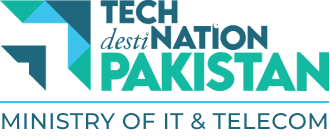Minister of State for Information Technology and Telecom, Ms. Shaza Fatima Khawaja says that Pakistan has been recognized in the Top Tier-1 (Role-Modelling) of the ITU-Global Cybersecurity Index (GCI-V5) 2024. Pakistan now stands alongside the world’s most advanced nations in cybersecurity, including the United States and Japan, reflecting the country’s strides in strengthening cybersecurity and resilience. Initiatives like the NCSP-2021, Cyber Security Regulations (PTA, NEPRA, SBP) Rules-2023, and Hackathons have played an important role in improving the landscape of information security in Pakistan. In October 2023 Pakistan established its first-ever National Computer Emergency Response Team (CERT), following the example of the European CERT. This will be followed by provincial/sectoral CERTs to strengthen digital defense at the federal and provincial levels.The Personal Data Protection Bill, currently under consideration, aims to address data privacy and breach notification gaps. Moreover, PSEB under MOITT conducted GDPR certifications of companies at subsidized costs. Organizations like Digital Rights Foundation provide training and advocacy on digital privacy and online security, though specific funding details are limited in public reports.
The government is also focused on promoting research and development to strengthen cyber security in the country. To undertake academic research, National Center for Cyber Security (NCCS) was established in 2018, which is housed at Air University, Islamabad. The Centre has eleven research and development laboratories at various universities across Pakistan working in different fields of Cyber Security. HEC has also formulated new academic degrees that include BS, MS, and Ph.D. Cyber Security and MS Systems Security programs. The Minister emphasized that the government is committed to further strengthening Pakistan’s cybersecurity framework to address emerging cybersecurity threats effectively.





